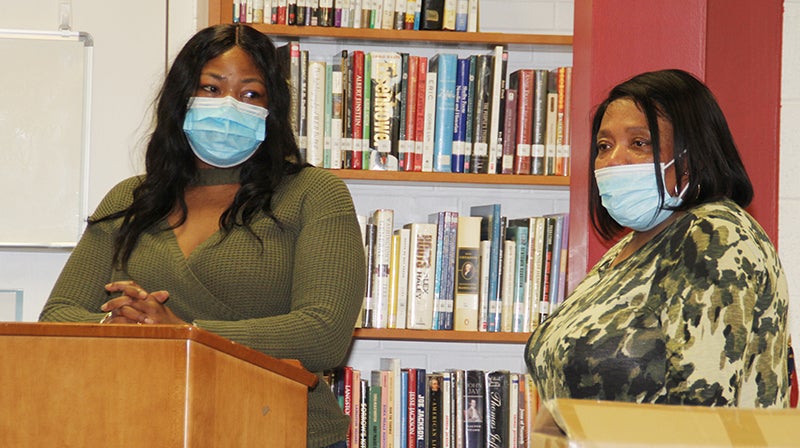Preserving the past
Published 10:48 am Friday, November 2, 2012
GATESVILLE – A group of local citizens has been appointed to serve on a committee that will help guide the restoration and reuse process of Gates County’s historic courthouse.
The appointment of the nine-member citizen committee was finalized during a meeting of the Gates County Board of Commissioners held earlier this month. There, Marie M. Allen of Sunbury, Anthony Felton of Eure, Linda Hofler of Sunbury, Sidney Pierce III of Hobbsville, Edith Seiling of Gates, Susan E. Shultis of Corapeake, Barbara B. Toti of Hobbsville, Adam B. Williams of Gatesville and Thomas Hill of Corapeake were approved by the commissioners to serve.
At the same meeting, the board engaged in a discussion regarding their inclusion as members of the citizens committee. Three commissioners – Vice-Chairman Henry Jordan along with Jack Owens and John Hora made it clear they would like to serve.
After learning there would be three commissioners on that committee, Owens said he had an issue with that fact as it would appear the trio would represent a quorum of the commission board.
“It’s a public perception issue,” Owens stated.
Jordan pointed out that even though three commissioners were on the committee, they would not comprise the majority of that group.
A motion was defeated by a 3-2 vote (Owens, Kenneth Jernigan and board chairman Graham Twine in opposition; with Jordan and Hora in favor) of seating three commissioners on the committee.
“I feel we need to guard the integrity of the (committee) meetings and guard the integrity of this board,” Owens said. “I would suggest contacting the (North Carolina) Institute of Government for their opinion on this matter.”
“In an effort for this committee to get organized and begin their body of work, I’ll step aside,” Jordan remarked.
Jordan then made a motion to accept the nine applications from the citizens that expressed an interest in serving on the committee and exclude any current sitting commissioner from that group at this particular point in time. Hora offered a second and the measure passed by a 5-0 vote.
Owens then motioned for Jordan to serve as the non-voting moderator of the committee. That motion also passed by a 5-0 vote.
Prior to those decisions, the commissioners heard an update on the old courthouse renovation project from Fred Belledin of ClearScapes Architects, the firm under contract by the county to handle the old courthouse project. That includes: phase one ($33,800 fee) to determine the existing conditions of the building, a structural assessment and studies related to potential new uses and summarizing potential funding sources; phase two ($36,200 fee) details the selection of the re-use, schematic design, tax credit/grant applications and documents and administration for structural repairs; and the final phase is the actual repairs to the building. That repair/construction phase is estimated in the $2.5 million range. The total project budget is in the range of $2.75 million to $3.2 million.
Belledin said his company is well underway with phase one, to include electronic base drawings of the entire building.
It was at their Oct. 5, 2011 meeting where the commissioners formally launched an effort to restore the local landmark. The late Federal style courthouse, completed in 1836, is showing its age with cracks to the foundation as well as work needed inside. It is one of a small number of ante-bellum courthouses remaining in the state and was placed on the National Register of Historic Places in 1976.
At a commissioners’ meeting this past summer, it was mentioned that Gates County voters may get a chance to help decide how to invest taxpayer dollars in the quest to save the old courthouse. However, those voters will not see that issue on a ballot anytime in the immediate future as county officials said there is a significant amount of legwork that must first occur prior to placing the issue before the voters. Research is also needed to ensure the county is following the direction of the State Statutes in regards to holding a voter referendum. Based on information provided by the North Carolina Local Government Commission, there are only three ways to allow for a referendum – a dedicated (tax) levy format, a statutory reason, or a local bill introduced to the General Assembly.



